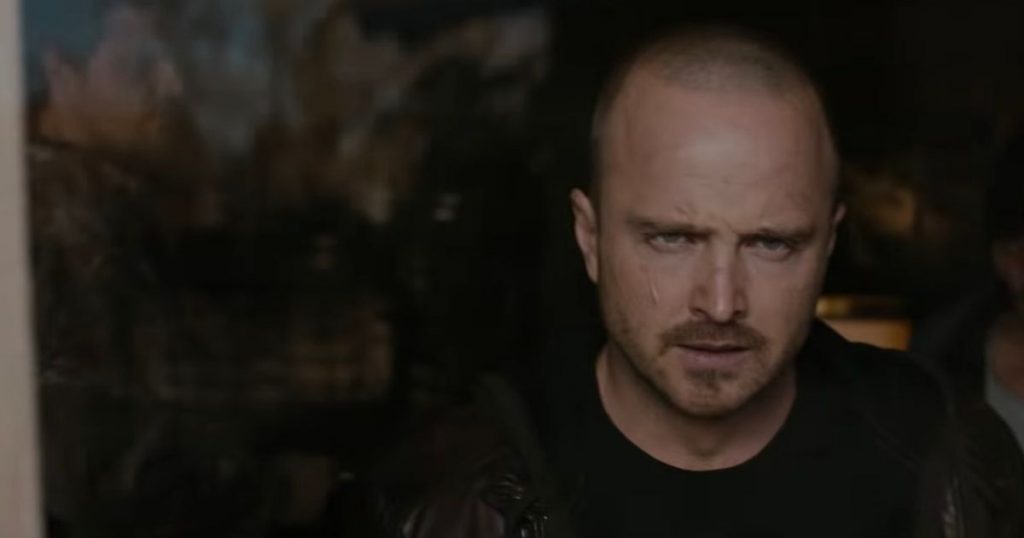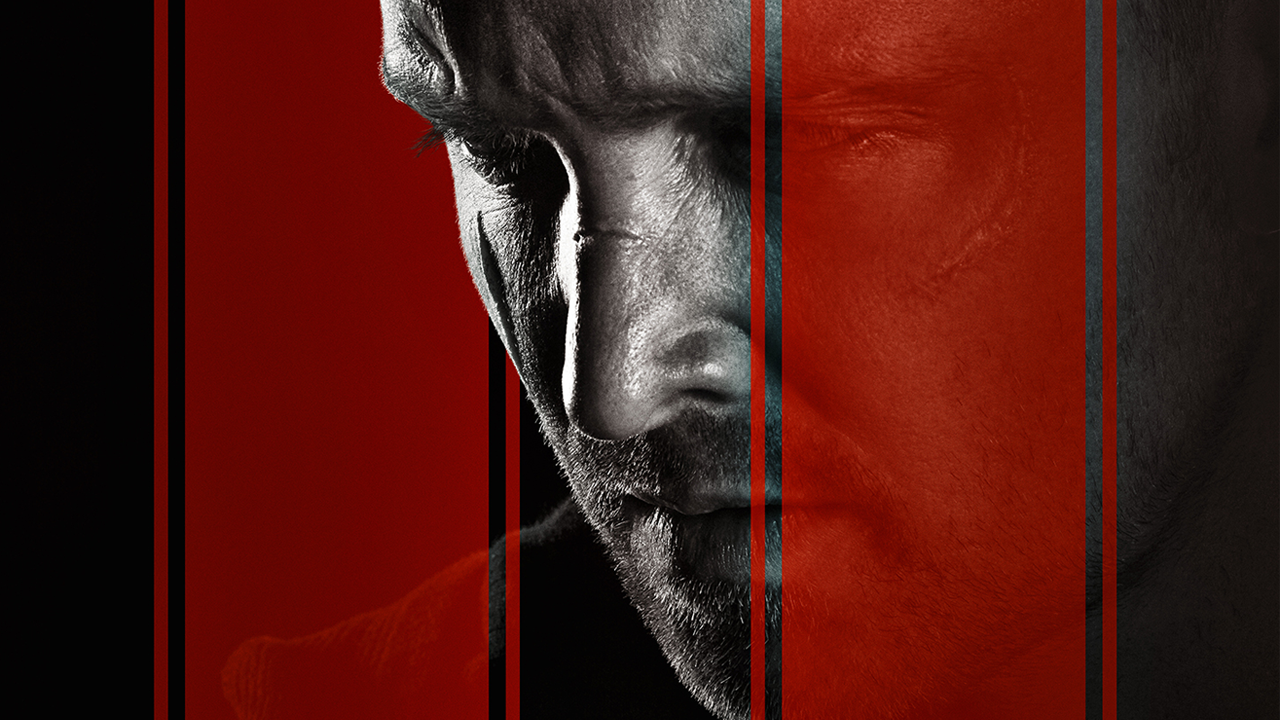It’s been six years since Breaking Bad ended, but you wouldn’t think it when you start watching watching El Camino. The film picks up right where the finale left Jesse Pinkman (Aaron Paul), driving into the desert after escaping his captors. The film expects you to remember the finer details of the last few episodes, and it brings back many characters from the show, often employing flashbacks to good effect.
Now a fugitive, Jesse tries to lie low as he tries to get out of New Mexico, reuniting with his old friends, Skinny Pete and Badger. He runs into a pair of perps when he goes looking for money in Todd’s (Jesse Plemons) apartment. We also get a look at Jesse’s time with Todd and his gang, his quiet desperation in those sequences informing his urgency in scenes set in the present.
This is a character piece through and through, and feels more like a self-contained, extended episode rather than a film.
Like the show itself, this film has a lot of parallels with old westerns, and the climax ends with Jesse drawing quick on his enemies with an old .22 pistol once owned by his grandfather. Jesse is mostly soft spoken, and Aaron Paul emotes his anguish with his eyes quite effectively. Jesse was victimized so much at the end of the show that you can’t help but want him to succeed.

The film retains the show’s signature flare, with plenty of intense moments and standoffs. Tension is at the heart of El Camino. That makes the relief and peace showed at the end feel even more deserving.
Gilligan’s hand is as firm as ever. His penchant for cinematography is once again on display: there’s a time lapse sequence where eight Jesses rummage through a house. Did he need to do El Camino, especially this many years after the finale? Probably not. At times, the film works like fan service of the highest level. There’s even a short cameo by Walter White (Bryan Cranston) himself, in a poignant scene that calls back to more wholesome (and happier) days in Jesse’s life.
In a sense, El Camino is the final step in Jesse’s transformation into an adult. His signature catchphrase is entirely absent from the film, and he is also more meditative, a big change from his usual brash demeanor. The way he confronts his enemies here is a marked difference from how he usually approached violence. The ending leaves him in a more peaceful place, finally able to move on from his trauma and demons.
There’s an argument to be made that we didn’t actually need El Camino. Indeed, if this was released to theaters instead of Netflix, it might have struggled to get a strong showing.
It’s a perfectly competent film, and it more than pays it dues to the show. Still, it feels like three okay episodes of Breaking Bad stitched together, which suffer due to absence of Cranston’s screen presence. Still, three middling episodes of Breaking Bad are better than a lot of the stuff out there.






















